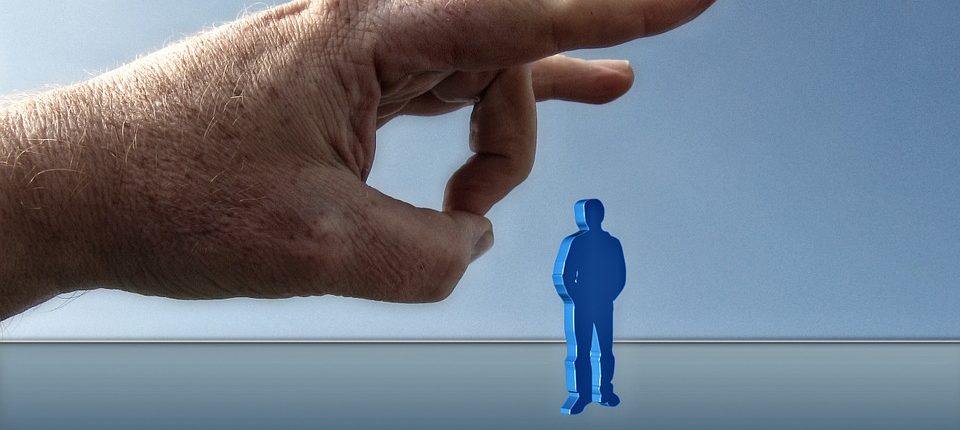Newsflash! Your Recruiter Practices Ageism!

By Oxford Dictionary definition, “ageist” as a noun is “a person with ageist views.” And “ageism” as a noun is “prejudice or discrimination on the basis of a person’s age.” The recruiter(s) you are working within your job search are practicing ageism.
There, I’ve said it. I’ve been a recruiter for 16 ½ years and I’ve been practicing ageism the entire time. Not because I’m prejudiced toward older people – good grief, I’m 75, a job- search and career-reinvention coach for over-50 folks and a passionate advocate for living a longer and healthier “second half” of life.
Ageism is built into the recruiting profession.
Just so you know, I’m not out to condemn this respectable profession. I’m one of ’em. I’ve befriended, partnered with, admired and enjoyed knowing many recruiters. It’s a great, but tough, profession. Recruiters are a special breed. They have to be to survive.
Look, they are working with creation’s most imperfect and unpredictable product on both ends of the recruiting equation – people. It takes grit, staying power, patience and extraordinary people, communications, and organization skills to succeed in this business. For the most part, recruiters are fiercely independent and hear a different set of drums– one of the reasons I like being around them.
None that I know are prejudicial ageists.
But we all discriminate every day. Someone gets picked, someone gets rejected. It’s inherent in the hiring process. But that discrimination may involve ageist-based decisions. It’s not a heart –based discriminatory decision. It’s a business-based decision.

So, why do I need to know this?
I’m writing this for the over-50 job seeker or encore-career candidate. That’s who needs to know and understand why the ageism element is embedded in the recruiting business.
First, please understand that, as a career coach, I advise against any job search strategy having more than 15-20% of the search effort dedicated to connecting with recruiters. It’s no different for someone over 50. Recruiters find people for jobs, they don’t find jobs for people. Unless you are a superstar, don’t expect any recruiter to do back flips because you called or sent your resume. The chances that he/she has a job order on her/his desk that you would fit into are as likely as you winning the Power Ball.
But there is another reason that recruiters should be a small part of your job search effort when you are over 50. It’s rare that they go on a dinosaur hunt!
OK, maybe a bit severe – I hear the “hrrumphs”. No, you are far from being a dinosaur, in your mind and in reality. But there’s a chance your recruiter perceives you that way personally (not likely), or, that seed has been planted through an off-the-record, “you-didn’t-hear-me-say-this” conversation” with the recruiter’s client (more likely).
Recruiters like to get paid
Remember the business model: he who writes the check dictates. So if your recruiter, in this little off-the-record conversation with his late-30-something client, is asked to bring in someone south of 50, your recruiter probably slips on the ageist hat. She/he is not going to put that check in jeopardy by getting on an anti-ageism soapbox even if they are a dedicated advocate. Not if they want to survive.
So, regardless of personal bent, your perceived recruiter ally may weed you out for this project, along with your fellow over-50 job seekers, and you’ll never know it. It all happens silently and secretly in the recruiting process.
Is your “dinosaur” showing?

Successful recruiters are very good sleuths. They can pick a “dinosaur–in-training” with little effort, especially with the advent of social media, particularly LinkedIn. Think of the ways that you can send off a dinosaur odor:
- LinkedIn photo – typically the biggest giveaway and the hardest to overcome. There is a limit to what photo-shop can do. Answer: do the best you can and have it professionally done and in current business attire. Hint: no photos with grandkids with grandma.
- Work history on the resume and LinkedIn profile – limit your history to 10 years back, maybe 15 if there are exceptional achievements back then that merit inclusion.
- Graduation dates: Put a 1980’s graduation date on anything, the cat’s out of the bag. Just state the degree, forget the dates.
- Email address – AOL, MSN, Yahoo, Earthlink (really – they are still out there) all say “Methuselah”. Get Gmail.
- No training in more current or trending technologies – if the last professional development course you took was on Cobol, VOIP or Quickbooks 2.0, you are better off leaving that out than mentioning it.
- 14 connections on LinkedIn – it’s been around since 2003 and acknowledged as THE default network for job seekers and recruiters. If you don’t have a 500+ in the third line under your headline, you are telling me, as a recruiter, that you are out of touch.
Look, let’s not whip this horse any deader with more do’s and don’ts. I’m just saying, be aware that the job market is rife with hidden, silent ageism and recruiters and their clients are both culpable – as a part of the business equation. That’s not likely to change. As recruiters, we get away with it because it’s all hidden from you, or from anybody for that matter. It’s business, man!
Here’s a couple of real-life examples:
I have a healthcare client who won’t accept any candidates over 45 for a front desk receptionist position because they “just can’t keep up with our pace and our electronic records technology.” I disagree with the premise but I bite my tongue and sidestep some obvious talent because my client has a bias based on one or two instances where someone didn’t perform. It’s a business decision driven by little things like having married a lady 47 years ago who still likes to sleep inside and eat warm food.
In another instance, while with a successful biosciences recruiting firm, I teamed with my boss to take a job order for a data analyst from a very large east-coast client. The hiring manager requested candidates “under 40, preferably with an undergrad degree from India, and 2 years of experience working with an American firm” I did the LinkedIn search, came up with over 150 suspects. In under an hour, my boss and I “discriminated” that list down to a manageable list of 25. Physical appearance and age (photo and length of work history) were key parts of the screening out process. Who knew but the two of us? Nobody.
This goes on every day inside of recruiting firms.
So, is there a solution coming with this problem?
First, don’t let your LinkedIn profile and resume scream “over-the-professional-hill”. Second, limit your reliance on recruiters and shift your search strategy to networking. Less than 10% of open positions are filled by independent recruiters. Over 80% of open positions are filled through referrals as a result of effective networking.
I had a coaching client, 58-years old, who networked herself successfully into three job interviews over the course of a month and then blew away a 30-something hiring manager at a large pharmaceutical firm by positioning herself as an experienced professional problem solver. Age concerns never surfaced as she demonstrated her understanding of the manager’s challenges and how she could help solve them. She’s in her dream job, making 25% more than her last job and has much more control over her time and life.
I encourage you to check out my five-part newsletter series entitled “Double-nickeled and Stuck! Getting re-employed at 55 or beyond.” Click here for Part One and follow it through all five pieces. I believe it will help you with tools to work around this, and other challenges, you may face in the job search process.






Leave a Reply
Want to join the discussion?Feel free to contribute!